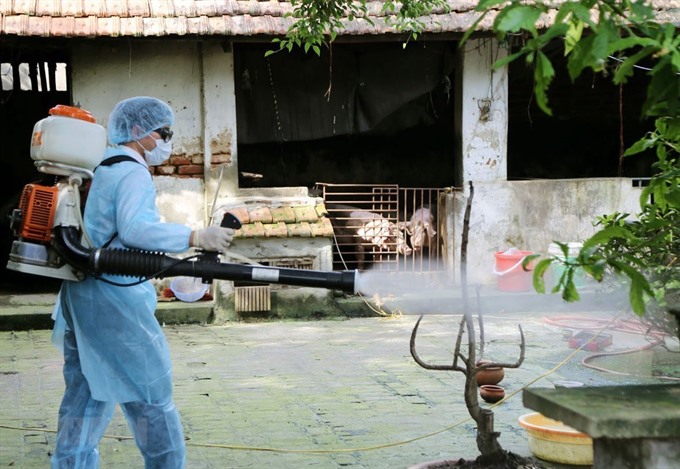 Society
Society

The UK Space Agency’s International Partnership Programme (IPP) will provide £6 million (US$8.36 million) to Việt Nam to develop an early warning system to predict dengue outbreaks in the country.
 |
| Workers spray chemicals against mosquitoes for prevention of dengue fever. — VNA/VNS Dương Ngọc |
HÀ NỘI — The UK Space Agency’s International Partnership Programme (IPP) will provide £6 million (US$8.36 million) to Việt Nam to develop an early warning system to predict dengue outbreaks in the country.
This was announced by UK’s Science Minister Sam Gyimah.
The integrated dengue early warning system project will receive £4.1 million (US$5.7 million) in the form of official development aid from the UK Space Agency, and the rest will be shared by other partners.
A group of British organisations, led by research and consulting firm HR Wallingford, will work with Vietnamese partners to develop an innovative tool that will allow beneficiaries to issue alerts for dengue epidemics. This will enable public health authorities to mobilise resources to those most in need.
The project will also provide forecasts of dengue fever under a range of climate change scenarios. By linking earth observation data with climate forecasting and a land-surface model, the impacts of various elements such as water availability, land use, climate, on the likelihood of future dengue epidemics can be predicted for the first time.
The dengue early warning tool will also include forecasts of water scarcity, contributing to improved water management of river basins that flow through Việt Nam.
“This new project will further strengthen the growing partnership between the United Kingdom and Việt Nam in science, research and innovation. Through the Newton Fund Vietnam, we are supporting new research partnerships between British and Vietnamese scientists in areas ranging from agriculture to public health,” British Ambassador to Việt Nam Giles Lever was quoted as saying by online newspaper Vietnamplus.
This is the second project in Việt Nam with funding from IPP. Earlier in 2016, IPP had sponsored £2.5 million ($3.5 million) for a project on coping with natural disasters in collaboration with Stevenson Astrosat, a British company.
Lever said the British government’s Fleming Fund was also supporting the implementation of Việt Nam’s National Action Plan for tackling anti-microbial resistance.
He said dengue had become a pressing public health concern for Việt Nam following a steep increase in the number of cases in 2017. Therefore, this project was both important and timely and would bring new and innovative approaches to the vital work of modelling and predicting future outbreaks, he said.
As many as 183,287 dengue fever cases were reported across the country last year, including 30 deaths. — VNS




